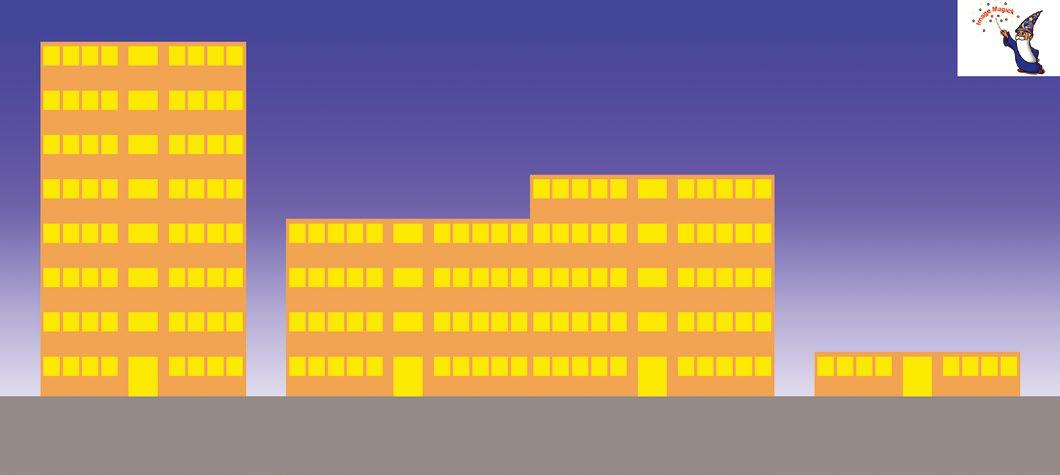
Although you would normally use a bona fide graphics program for drawing and painting, there are definitely situations in which you need to draw regular shapes in an image repeatedly at fixed intervals – as shown here, for example, when creating the silhouette of an imaginary city (Figure 1). This does not require an expensive graphics program with a sophisticated macro language. Using the free and open source ImageMagick software package at the command line is more than up to this task.
To compose more extensive images, you will need the support of a scripting language such as Bash, which uses loops and other control structures to repeatedly insert image content into the graphic. ImageMagick can be found in the package sources of most Linux distributions, but it can also be downloaded for installation from the download section of the project page [1].
magick logo: logo.gif
Painting by Commands
After completing the install, type at the command line. ImageMagick will create the logo.gif file in the current directory. It shows the magician seen in the upper right corner of Figure 1. You can easily check this by opening the file in a suitable image viewer. Image names ending with a colon are internal test images in ImageMagick. You can create more test images with the rose: and wizard: [2] options.
To demonstrate that you can actually draw at the command line with ImageMagick, see the command in Listing 1.
Listing 1: Rectangle
Diese Geschichte stammt aus der #263/Ocober 2022: Build an IoT Linux-Ausgabe von Linux Magazine.
Starten Sie Ihre 7-tägige kostenlose Testversion von Magzter GOLD, um auf Tausende kuratierte Premium-Storys sowie über 8.000 Zeitschriften und Zeitungen zuzugreifen.
Bereits Abonnent ? Anmelden
Diese Geschichte stammt aus der #263/Ocober 2022: Build an IoT Linux-Ausgabe von Linux Magazine.
Starten Sie Ihre 7-tägige kostenlose Testversion von Magzter GOLD, um auf Tausende kuratierte Premium-Storys sowie über 8.000 Zeitschriften und Zeitungen zuzugreifen.
Bereits Abonnent? Anmelden

MADDOG'S DOGHOUSE
The stakeholder approach of open source broadens the pool of who can access, influence, and benefit from information technologies.

MakerSpace
Rust, a potential successor to C/C++, claims to solve some memory safety issues while maintaining high performance. We look at Rust on embedded systems, where memory safety, concurrency, and security are equally important

In Harmony
Using the Go Interface mechanism, Mike demonstrates its practical application with a refresh program for local copies of Git repositories.

Monkey Business
Even small changes in a web page can improve the browsing experience. Your preferred web browser provides all the tools you need to inject JavaScript to adapt the page. You just need a browser with its debugging tools, some knowledge of scripting, and the browser extension Tampermonkey.

Smarter Navigation
Zoxide, a modern version of cd, lets you navigate long directory paths with less typing.

Through the Back Door
Cybercriminals are increasingly discovering Linux and adapting malware previously designed for Windows systems. We take you inside the Linux version of a famous Windows ransomware tool.

Page Pulse
Do you want to be alerted when a product is back in stock on your favorite online store? Do you want to know when a website without an RSS feed gets an update? With changedetection.io, you can stay up-to-date on website changes.

Arco Linux
ArcoLinux, an Arch derivative, offers easier installs while educating users about Arch Linux along the way.

Ghost Coder
Artificial intelligence is increasingly supporting programmers in their daily work. How effective are these tools? What are the dangers? And how can you benefit from Al-assisted development today?

Zack's Kernel News
Chronicler Zack Brown reports on the latest news, views, dilemmas, and developments within the Linux kernel community.